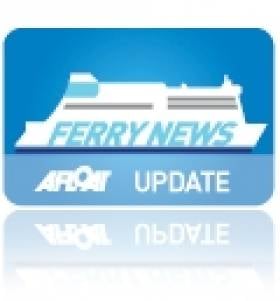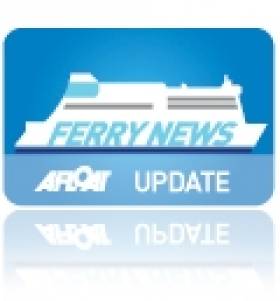Displaying items by tag: Kerry County Council
Kerry Harbour Users Say No to Over-Regulation
#IRISH HARBOURS - Protesters took to the water off Kerry's piers last month in an organised swim drawing attention to proposed harbour bylaws designed to regulate the activities of water users.
“We need to make the public aware they have to make submissions,” Denise Collins told The Irish Times from Kells, which hosted one of the largest swims. “Traditional activities such as swimming will be over-regulated, we fear.”
The proposed bylaws would give Kerry County Council greater control over 16 of the county's 57 harbours and piers, including Kells, Kenmare, Portmagee, Brandon and Ventry.
Under the new bylaws, strict regulations would be placed on the use of loudhailers, landing and unloading passengers and freight, waste and even movement around the harbour.
"Draconian" charges are also set to be imposed on fishermen and other harbour users, while campaingers also feel that a ban on swimming and diving could also be added to the list.
The proposed bylaws already suffered a set-back earlier this year when Kerry County Councillors decided to restart the consultation process to allow the fishing industry, tourism operators and other interests more time to make submissions.
According to the Irish Examiner, only two submissions had been received by the council as of its January monthly meeting, despite senior council officials working for months on the draft proposals.
Cllr Toiréasa Ferris commented that the proposed charges in particular "would have huge implications for fishermen, some of whom might currently be earning only between €40 and €50 for a 14-hour day."
As previously reported on Afloat.ie, charges may also soon be hiked on yachts berthing at Ireland's main fishing harbours, a list that includes Dingle in Co Kerry.
Irish Marine Federation chairman David O'Brien expressed concern at the potential for such charges to damage "the good tourism dividend for coastal towns", noting that for every euro spent on a harbour berth, €10 was normally spent in the locality.
€500k Sought to Restart Cork-Swansea Ferry Link
#FERRY NEWS - Approximately €500,000 is to be sought from three local authorities in the south-west region so to help restart the Cork-Swansea route which was served by the M.V. Julia (1982/22,161grt) until sailings ceased in November last year.
Representatives from Fastnet Line Ship Holdings Ltd are expected to attend a special meeting of Cork County Council next Monday at which they will outline a business plan for the company, which is in examinership.
They will also address a scheduled meeting of Cork City Council later the same day and are expected to communicate their request to Kerry County Council shortly.
For more about this story in today's Examiner click HERE
Restructured Fastnet Line Reduce Year Round Service to Seasonal Schedule
The discontinued winter sailing schedule for this year is also expected not to be repeated during October 2012-March 2013. Fastnet Line's decision to make the Celtic Sea route into a shoulder season and summer only service follows a similar path taken by Stena Line which withdrew Dun Laoghaire-Holyhead (HSS) sailings in mid-September, for report click here. The central corridor route is due to reopen sometime in April or May 2012.
Cork City and County council and Kerry County council have provided €700,000 to support Fastnet Line and yesterday they announced an additional €150,000 in co-funding for the period of the examinership. In order to stabilise finances the ferry company are to radically reduce passenger capacity of the Julia (see photo) from 1,500 down to 950. This is in line with the capacities of the Julia serving 'night' sailings.
She has a crew predominately from Eastern Europe and Irish and UK deck officers. The Bermuda flagged, Hamilton registered vessel is currently berthed at Ringaskiddy Ferry Terminal, Cork Harbour. At 154m she is the largest ferry to date capable of berthing in the limited confines of the swing basin in Swansea and with a draft of 5.8m in a port which is subject to a large tidal range on the Bristol Channel.
Operating costs on the 10 hour service has been severely hampered by continuing increases to world oil prices. From the year 2010 to this year, fuel costs rose by 27% and almost 50% from the original budget of 2009. The company claims that each crossing amounts to €18,560 alone in fuel costs.
Fastnet Line to date has carried 150,000 customers, of which 75% have originated from the UK market, generating on average €350 per person (€40m approx) exclusive of fare and on-board spend. This crucial market is core to the success of the company's direct 'gateway' route to scenic south-west Ireland, with Swansea connected to the M4 motorway linking midland population centres and London. The operator claims a saving of 600km driving based on a round trip compared to using rival ferries running on routes to Rosslare from Pembroke Dock and Fishguard.
Since the reinstatement of the service in March 2010, after Swansea Cork Ferries pulled the Superferry (photo) off-service in 2006, the loss to tourism generated revenue on both sides of the Celtic Sea was estimated to be £25m per annum according to the Welsh Assembly and a similar figure recorded in the Cork and Kerry region.
The company also outlines the reduction in carbon emissions saved from operating the only direct service specifically connecting the regions of Glamorgan and Munster. Some 500,000 freight miles alone were saved in the Welsh region since the service started instead of using alternative route running from Pembrokeshire ports.
- Cork Harbour
- west cork
- port of Cork
- Celtic sea
- Cork City council
- Fastnet Line
- M.V. Julia
- M4 motorway
- Kerry
- Irish High Court
- Stena Line
- Ports and Shipping News
- cork harbour news
- Ferry news
- HSS
- Welsh Assembly
- Cork County Council
- Associated British Ports
- ABP
- Ringaskiddy Ferry Terminal
- M.V. Superferry
- SwanseaCork Ferries
- SCF
- Fastnet Line Group
- Kerry County Council
- HSS Dun LaoghaireHolyhead sailings
- Glamorgan
- Munster regions
- Bristol Channel
- Bristol Channel tidal range
- Swansea Port
- Irish tourism sector
- Pembroke DockRosslare
- FishguardRosslare


























































